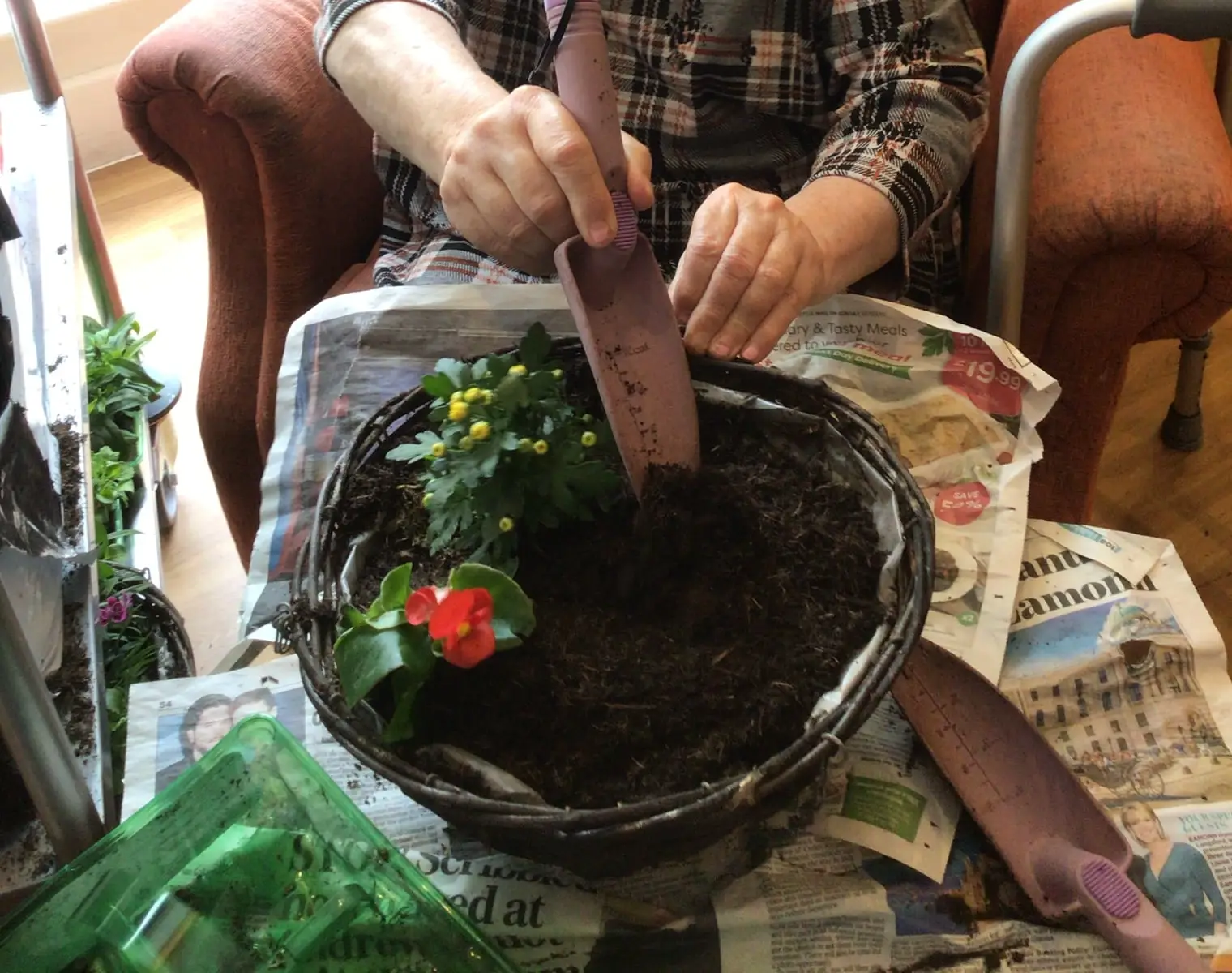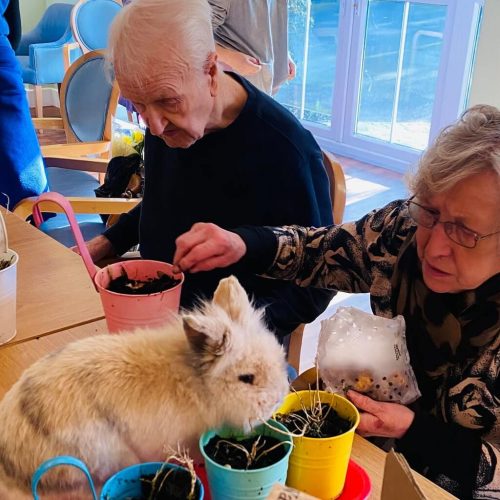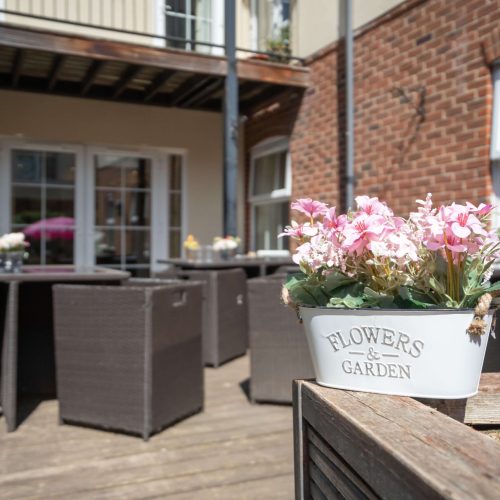Gardening Therapy For Dementia

Gardening is often a hobby and passion that residents bring with them when transitioning into life at a care home. It is often an activity encouraged at care homes, especially for those living with dementia, because it can be a great therapy tool.
Gardening is an activity that provides both mental and physical exercise, which helps your loved one remain as independent as possible while working to slow the progression of the deterioration.
At LuxuryCare, we include gardening therapy in our activities programmes and care plans, encouraging our residents to get out in our gorgeous gardens to breathe fresh air and enjoy being in nature.
In this blog, we explain what gardening therapy is and discuss the benefits that make it an integral part of our dementia care.
What is Gardening Therapy?
Gardening therapy is sessions of gardening activities aimed at exercising certain skills, with the goal of helping improve or maintain these skills.
Led by a professional, the sessions help residents work towards and achieve specific goals.
Activities will include:
- Planting
- Seeding
- Watering
- Pruning
- Harvesting
- Checking for bugs
- And more.
As well as providing a great therapy session for long-term residential and nursing residents at care homes, gardening therapy can be a valuable activity for those with dementia as it can help them relax while engaging their minds and bodies.

Benefits of Gardening Therapy for Dementia Patients
The benefits of gardening therapy extend beyond providing gentle physical exercise.
Cognitive Benefits
Gardening therapy is often found to help cognitive functions in those with dementia.
The different textures, smells and colours stimulate the senses without overwhelming them. This sensory engagement helps improve memory recall and cognitive function.
Additionally, the activities provide opportunities for learning new skills and recalling past experiences. Both of these utilise brain function, which, when used frequently, can slow the deterioration of the disease – after all, the brain is a muscle that needs to be exercised to remain strong, just like your biceps or quads.
Physical Benefits
Even in the simple motion of watering plants, your loved one is completing soft physical exercise. They won’t even be thinking about it, making it an enjoyable exercise with a reward too (flowering plants).
Of course, when gardening, your loved one will be taking care when planting, watering and pruning their plants and seeds, so it is also a great exercise for coordination and motor skills, two things that are often lost during the progression of dementia. Like using the brain, if these skills are practised regularly, it is more likely that the deterioration will slow down.
Finally, being in the sun and exposure to fresh air will also affect their physical health, helping them sleep better and usually improving their appetite.
Emotional and Psychological Benefits
Those living with dementia will experience the same emotional and psychological benefits of gardening as anyone else.
The fresh air and act of gardening have been shown to reduce stress and anxiety levels, as well as boost mood and overall happiness.
Additionally, tending to flowers, plants, and shrubs can give your loved one a sense of purpose and accomplishment, boosting self-esteem and worth.
Social Benefits
Gardening therapy in dementia care can be done in group sessions, making it a very social activity.
Thanks to the space provided in the gardens, a group of several residents can take part in the activity, encouraging your loved one to socialise and work with others.
Finally, with the emotional and psychological benefits, gardening can also help caregivers, peers, and relatives build stronger relationships as they participate in a shared activity and interest.
Implementing Gardening Therapy At LuxuryCare
Each of our care homes has a gorgeous garden well-maintained by caretakers and our residents.
Plus, our activities ambassadors collaborate with gardening therapy specialists to include a variety of activities, both led by the professional and our staff, so that residents and their families can make the most of our outdoor facilities.
With the help of the specialists, we ensure that all of our gardening activities are dementia-friendly so that no one misses out.
Mobility can make gardening difficult, which is why we raise some of our plant beds so everyone can easily access them without needing to sit on the floor.
Additionally, our gardens have level, smooth pathways, making it easy for everyone to access every part of our gardens. No matter whether they are in a wheelchair or walking, there will be no bumpy rides or trip hazards.
And, it goes without saying, that there is always a cool, shaded area for residents to enjoy when the sun gets a little too fierce.
Gardening Therapy is something everyone can get involved with, so whether your loved one is with us for long-term care, respite care, palliative care or simply day care, we will encourage them to join in, start building relationships with others and take pride in the work they do.
And if you happen to be visiting your loved one while we are running the activity, why not join in?

See Our Gardening Therapy In Action
If you would like to understand more about how we incorporate gardening therapy in our care plans or see what activities we include in our sessions, visit us.
When you visit our homes, we will take you on a tour of the rooms, facilities and gardens so that you can get an insight into the lifestyle at LuxuryCare.
Throughout the tour, we will discuss our activities and encourage you to join in whatever is currently happening, be it lunch in our dining area, gardening therapy, singing or any other fun activity.
Book your visit with your loved one today by calling us on 01202 037373 or completing our online enquiry form to request a callback.














